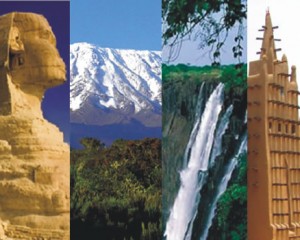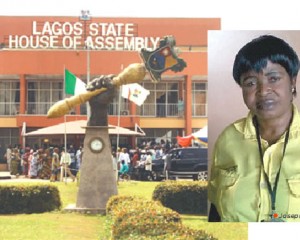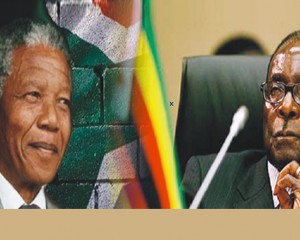Latest update August 20th, 2024 10:04 AM
ODUMEGWU OJUKWU (1993 – 2011), AFTER OJOKWU: WHO LEADS IGBO
Apr 28, 2012 Samuel Africa News 0

From time immemorial, choosing their leader has always posed a problem to Igbo, to extent that it is widely believed that it would be difficult for them to accept to be under anybody’s leadership. The axiom IGBO ENWE EZE (literally meaning Igbo have no king) took its root from his thinking. The closet Igbo came to have an anointing leader was when the Great Zik of Africa, Dr. Nnamdi Azikwe, returned from Pennsylvania, United States of America in 1934, to join the independence struggle. Contrary to the expectation of Igbo that Azik would emerge as a parochial and clannish leader, he took a Pan-African posture. His reasoning, actions and utterances were skewed toward achieving the ultimate goal of uniting the whole of Africa and building bridges across tribes, religions and statuses. His fame spanned every length and breadth of the world. There is hardly any part of the globe that does not recognize the role this great son of Nigeria played in the international sphere and space. Even his death has not diminished his stature or status globally. No wonder his life has remained a course of study in many tertiary institutions across the world. At Pennsylvania University where he lectured for many years, he towers like a colossus even in death.
Indeed, the tenure of Zik as president instead of particularly advancing the interests of Igbo furthered the overall interest and sovereignty of Nigerian nation, which he loved with so much passion. Even in the build-up to the pogrom in 1996 that led to the massacre of Igbo, Zik maintained a non-partisan and neutral position. He rather strove after the unity and peace of Nigeria. This position attracted to him scorn from some of his people.
Though he was highly rated and respected among Igbo, this did not make him a truly Igbo leader. So Igbo continued their search for a real leader that would meet their aspirations as a people and promote their interests in a complex nation as Nigeria. Curiously, at this critical time, other tribes such as Yoruba and Hausa had instituted leadership led by Chief Obafemi Awolowo (former Premier of Western Nigeria) and Sir Ahmadu Bello (Sardauna of Sokoto and former Premier of Northern Nigeria), respectively. The culture of political suaveness and dexterity they stood for is still dominant in their respective regions till this day. Probably, this accounts for the advantage both regions have had over other region, especially the South East geopolitical Zone that has found it grueling to find its feet in Nigeria’s political space. As expected, some critics of Igbo origin have constantly blamed this on Azik’s over-compromising politics.
Yoruba place in Nigeria’s socio-political development has been quite pivotal, placing them at a strategic position for survival. While other tribes are running helter-skelter, seeking solution to their endemic marginalization, Yoruba are celebrating the 103rd anniversary of the death of their life leader, Chief Awolowo! That is the beauty of the leadership thrust of the famed late Yoruba leader.
Nevertheless, the real test for Igbo unity and identify came when they were faced with annihilation in mid 60s. They desperately wanted a leader to take them out of the land of ‘Egypt’ into the ‘Promise Land’. They looked toward the East, West, North and South for a Messiah, but none came. Fearing that his people might be wiped out of the face of the earth Chukwuemeka Odumegwu-Ojukwu was moved to take up the leadership gauntlet to fight for the emancipation of his people from internal colonialism and neo-imperialism.
The desire to lead Igbo was a personal critical choice made entirely by Ojukwu himself. He was neither goaded nor coerced. He assessed himself every critically and felt he fitted into the picture of an emerging Igbo leader. His interest in the leadership of Igbo was not personal gains, but it was borne out of exigency. What would a graduate of history from the prestigious Oxford University, United Kingdom and son of a multimillionaire be doing with the leadership of a people thought to be inexorably complex?
In any case, the attitude of Ojukwu to the Igbo project was one totally opposed to self-aggrandizement and self-glorification. He was unwaveringly committed to the freedom of his people and the carving out of an identity for which they would be recognized and respected. It was in strict pursuit of his agenda that he led to them to a 30 months civil war of liberation from annihilation. The choice to go to war was the only option available to him at the time. It took a man of Ojokwu’s clout and courage to lead a complex and ambivalent race as Igbo to war, without any opposition. Those opposed to war, in whatever guise, did that surreptitiously as they lacked the boldness to withstand the unison of Igbo to defend themselves. It could, therefore, be said that Ojukwu defield the age-long attitude of Igbo not to subject themselves to the leadership of one man. Again, the war has torn to shreds the thinking that Igbo are difficult to lead.
What however distinguished Ojukwu leadership was him intellectualism, simplicity, sincerity of purpose, the popularity and wealth of his father, courage, vision and military background. Ojokwu was many things tolled into one, yet he was unassuming and urbane. Even though the war was a very difficult one to prosecute, Ojukwu still managed to keep his nation afloat, despite the sophistication of the enemy’s weaponry and allies. It is not arguable that only a few tribes could face the adversities Igbo faced during the war and still live to tell the story.
Contrary to the views in some quarters, it was not a stupid thing for Igbo to have gone to war. This is why up till today Igbo are united in the approval and support they gave Ojokwu during the war. This position has been vindicated by the national burial accorded Ojokwu by the Federal Government, and the utterances by some prominent Nigerians on the death of the Ikemba. For instance, Dr. Tunji Braithwaite said bluntly during the day of honour for Ojokwu organized in Lagos as one of the events lined up for the burial, that Ojokwu did not secede, rather that it was circumstances that compelled him to do so. To be continued in the next edition.
By: Orji Uzor Kalu
Advertise Here
Tourism
-
 TOP 8 Tourists Attraction Centers In Africa
TOP 8 Tourists Attraction Centers In AfricaMar 11, 2019 0
THE PYRAMIDS AND THE SPHINIX The pyramids and the Sphinix... -
 Top Hotels in Gambia
Top Hotels in GambiaMay 23, 2015 0
COCO OCEAN RESORT AND SPA With its discreet whitewashed... -
 Destination Gambia
Destination GambiaMay 22, 2015 0
GAMBIA RATES HIGH FOR ‘CONFERENCE APPEAL’ Famed for its... -
 TOP 12 Tourist Attractions In Africa
TOP 12 Tourist Attractions In AfricaNov 19, 2014 0
… And if you have chance for picnic in Africa here is the...
Icon & Special Reports
Views
-
 Festac’77 at 40 Celebrations, Olusegun Obasanjo Decorated...
Festac’77 at 40 Celebrations, Olusegun Obasanjo Decorated...Nov 11, 2017 0
The world Black and Arts festival that was hosted in... -
 Lagos House To Honour Airport Cleaner Who Returned N12m To...
Lagos House To Honour Airport Cleaner Who Returned N12m To...May 27, 2015 0
Lagos State House of Assembly has invited Josephine Agwu... -
 African, gay campaign and neo-racism
African, gay campaign and neo-racismSep 28, 2013 0
As I have argued from the beginning of my position on this... -
 Between Mandela and Mugabe
Between Mandela and MugabeSep 20, 2013 0
South Africa legend and nobel laureate, Nelson Mandela,...
Entertainment
Nov 17, 2017 0
Tiwa savage is a natural singer with sense of passion to show case the dynamic qualities she possessed, which has earned her accolade and support from numerous fans across Africa and United Kingdom....


















